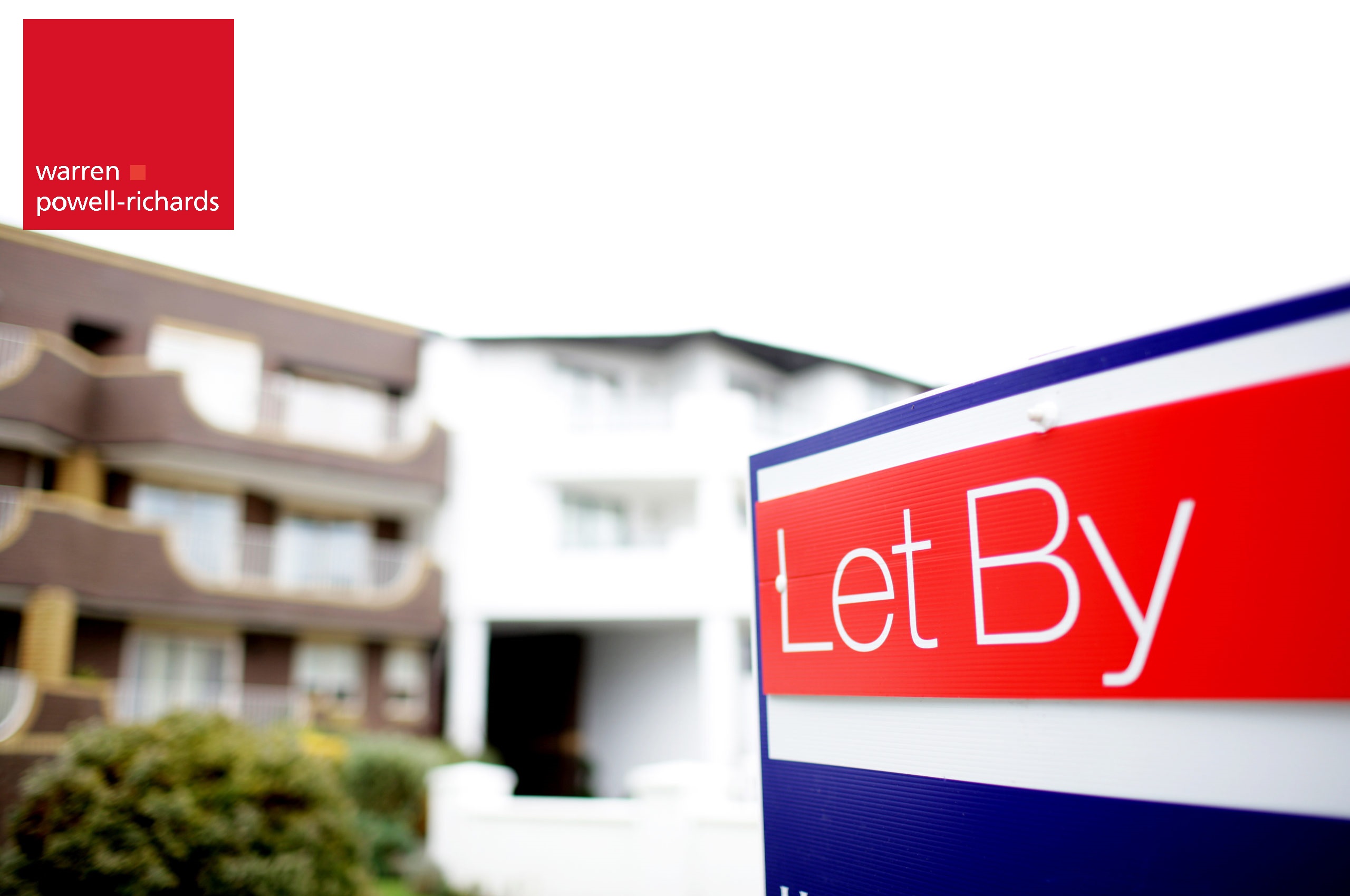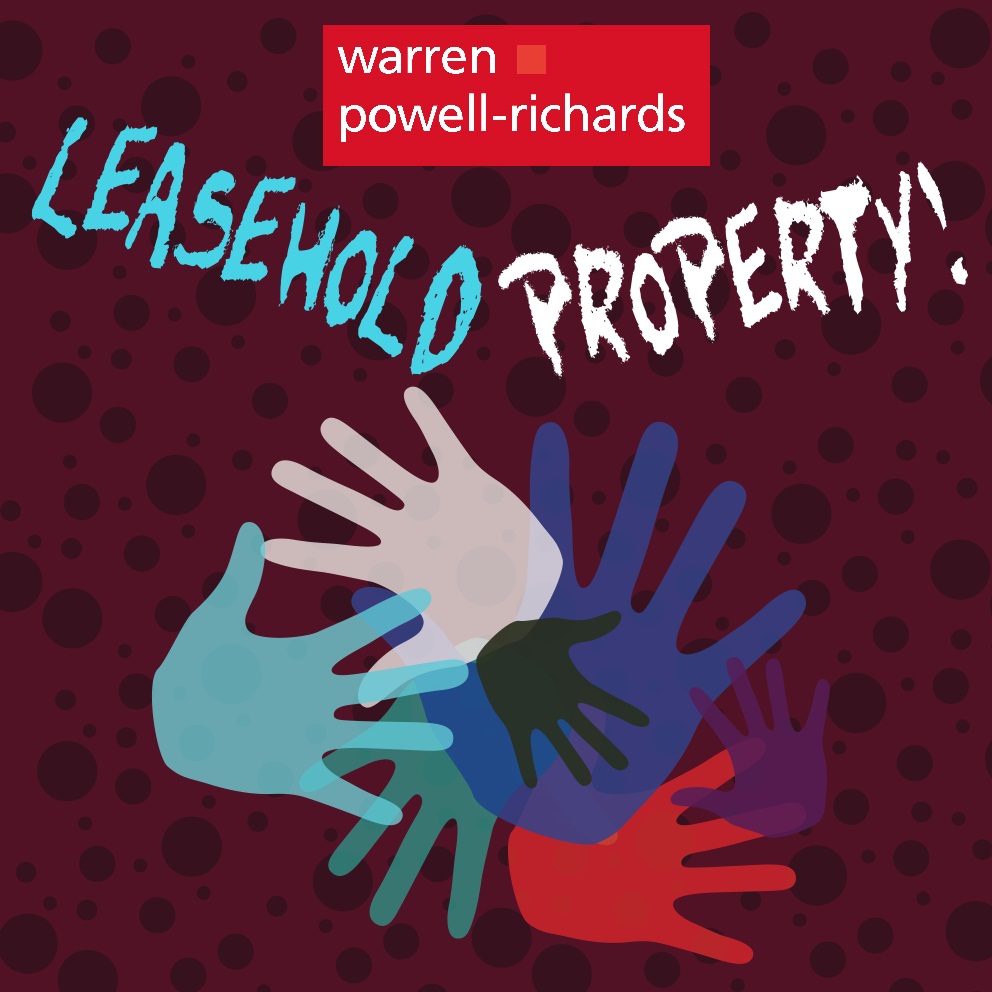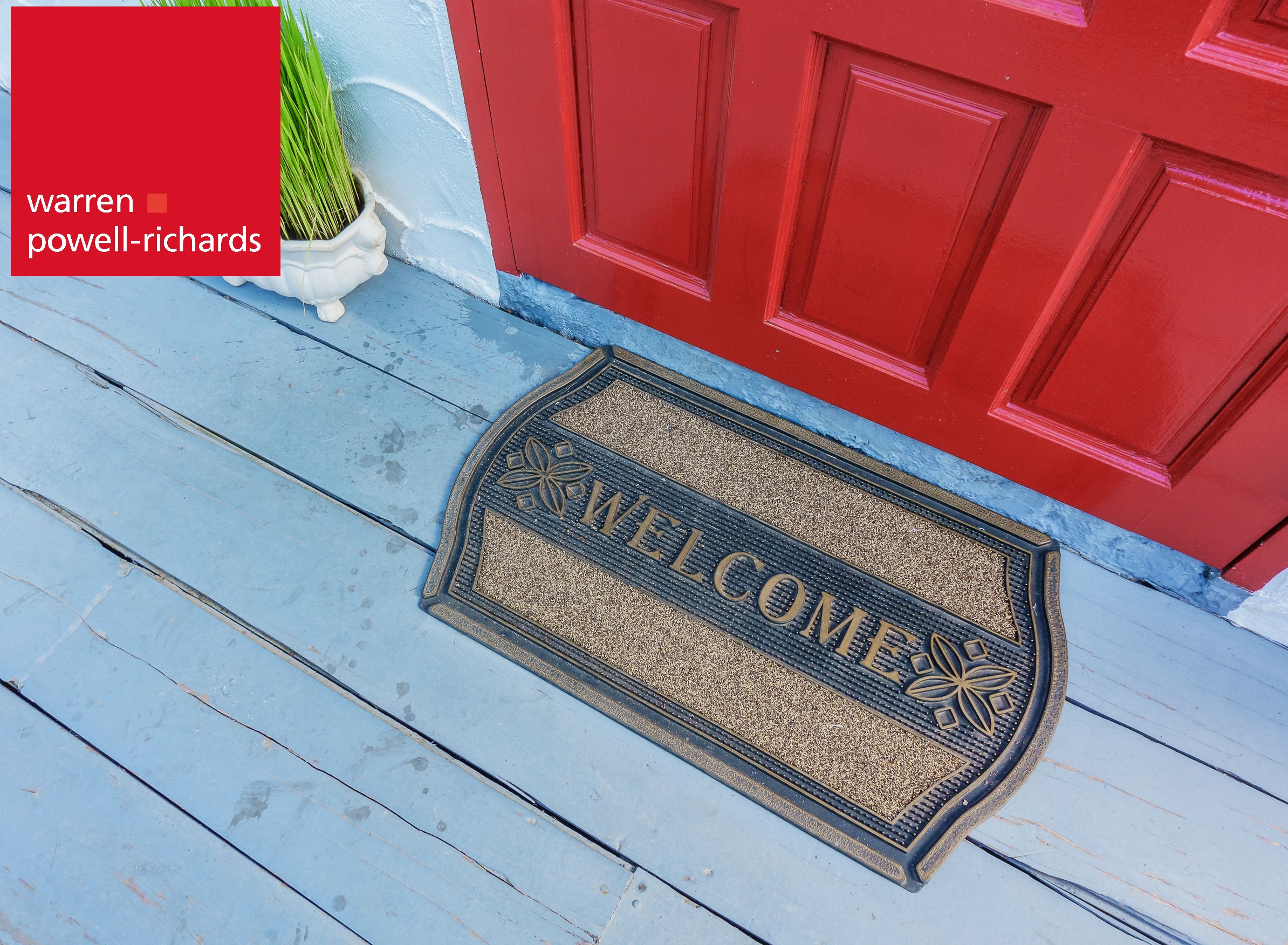Blog
- Details
- Hits: 516

New Year…New Agent?
We’ve noticed a trend recently. You love your home, but you’ve also realised that you need somewhere new. Perhaps somewhere larger, somewhere with a bigger garden, somewhere closer to the countryside, or even somewhere a little smaller.
Yes, it appears you’ve got a dose of ‘ready to move’, and what better time than the New Year – a time often linked with new beginnings and fresh starts.
So, how do you find the best estate agent?
What questions should you ask?
As property experts in the area, we at Warren Powell-Richards thought we’d give you our seven tips so that you can choose the best estate agent for you.
Phone a Friend
Ask for recommendations. Friends and family can point you in the right direction and equally they can steer you away from the agents to avoid! Ask them if they’ve had a great experience with a particular estate agent, and enquire about how communicative, knowledgeable and friendly the agent was. Did the agent get the job done – and achieve the asking price or above?
Tip: Social media is your friend! If you’re a member of a Facebook community group in a particular area, post your questions in that group. And while you’re there check out local estate agents’ profiles to discover more about their local area knowledge and understand how they interact with the local community.
Read Reviews
Check out estate agents reviews online. Facebook reviews, Google reviews and reviews on Feefo can all give you an insight into other customers experiences. Have a read through to get a good idea as to whether or not an agent is worth shortlisting.
Tip: Always have an open mind when reading reviews, because while most will be genuine, some negative ones (and some positive ones) may not be.
Check the Agents Website
If you have a couple of shortlisted estate agents, check out their websites. Compare and contrast the services they offer and the fees they charge. Research where they market their properties and check out their social media feeds.
Tip: If you’re comparing and contrasting, you need to ensure you know what you want your chosen estate agent to do for you. Write a wish list of your requirements.
Check Fees and T&Cs
When it comes to estate agents, each will offer a slightly different service, and each will have a different way of operating. You have high street offices, internet-based offices, and hybrid agencies that blend traditional with the internet. Each has its advantages and disadvantages depending on your individual requirements, but always check the small print and look at the overall service.
Tip: Do some research and decide whether you want a sole agency agreement, or if you would like multiple agents to market your property. It’s important to read the contractual obligations if you choose the latter.
Review your Agent’s Performance
Remember, your estate agent will be working for you, to get your house marketed and sold. But it’s actually a two-way thing and you will need to do what you can to help them do their job too. Your agent should be prepared to communicate with you if they think things should change, like a review of the price for example. And you should feel confident enough to ask about performance and see results or otherwise.
Tip: Have a clear understanding of your expectations and what you will want to review. Is it the number of people shown your property, or is it the number of hits on property websites? Is it about proactive calls made to prospective buyers, or is it to get an offer within a certain timeframe?
Same Difference
When you are narrowing down your shortlist, have a look at the properties that the agent sells.
- Are they similar to your house?
- Do they have any experience selling homes similar to your property?
- Can they talk with good knowledge about the local area?
- How accurate are their valuations?
All of these are a must because you need to know that your agent knows what they are doing and can convey that to a prospective buyer.
Tip: If you want to know how much similar properties have sold for have a look online so that you are fully informed.
Trust your Gut Instinct
There’s a lot to be said for getting a feel for whether you have picked the right agent to market your property. Something may simply click into place when you’re having a conversation, or you may know immediately that the agent is for you. Trust your instinct as it may well be right.
Tip: While we say trust your instinct, make sure you also carry out the checks and reviews as well!
- Details
- Hits: 446

How Do I Pick the Best Lettings Agent?
If you’re a new or inexperienced landlord, or you simply don’t have the time to manage your property, then it may be time to consider hiring a lettings agent to manage the property for you.
But how can you ensure you’ve found the right one for you? Our handy tips will help you to pick the best lettings agent.
● Ask for recommendations
If you have family or friends who rent out their properties nearby, or you know any other landlords in the area then ask them who they use, and whether they would recommend them.
Word of mouth is often the most effective form of marketing, and there may even be a referral bonus for both parties.
● Check they are regulated
This is absolutely essential if you’re going to pick the right lettings agent for your property. As with most industries there are a few cowboys out there looking to make a quick bit of cash, with minimal experience in their field.
As a minimum you’ll want to choose a lettings agent that’s registered with the Property Ombudsman, but it’s a good idea to find one that’s a member of the National Approved Letting Scheme (NALS), or the Association of Residential Letting Agents (ARLA).
● Compare fees
You don’t have to pick the first lettings agent you find, so contact a few agents and find out their fee structures.
Remember, it’s not always a good idea to just go with the cheapest to save money. Check with each of the agents what’s covered in their fees, as you might not be comparing like for like and could find yourself getting stung with hidden charges. It’s important you feel comfortable with your chosen lettings agent too and are happy with their level of knowledge, service and expertise.
● Check for reviews
Websites such as All Agents have reviews from both landlords and tenants, so you can get a good idea of the merits of each agent from both sides.
Just because other landlords might be happy with the service, it doesn’t mean the tenants are. And a lettings agent with lots of unhappy tenants could discourage them from using that agency again, regardless of how much they like your property.
● Decide which services you need
Some lettings agents may be better than others depending on what services you require. For example, are you looking for a lettings agent that just finds a tenant and sets up the initial contract, leaving you to manage the property once they’re in situ?
Or are you looking for a lettings agent that takes care of full property management on your behalf, including complaints and maintenance issues?
Deciding what level of service you want can be a key factor in choosing the right agent, especially if you don’t live close to the property.
● Check which money protection scheme they are In
All lettings’ agents are legally required to hold tenants’ deposits in a government-approved tenancy deposit scheme.
They are also required to be a member of a client money protection scheme (CMP). They’ll need to have a certificate confirming this, which is displayed prominently in their offices and on their website. If it’s not visible then ask to see it, and if they don’t have one then it’s a huge red flag.
● Ask about their marketing strategies
Find out which property sites they advertise on and do some research yourself. A quick search on the big three – Zoopla, Rightmove and On The Market – will help you to get an idea of how well they market their properties, and how successful they are at renting them out efficiently.
Is the lettings agent active on social media?
Do they have a blog or news page?
How active are they in the local community?
All of these things will have a bearing on their reputation.
Look for things like photos and descriptions. Have the photos been taken professionally? Are the descriptions well written and error free? You want to employ the most professional agent you can find, so one that takes blurred pictures and makes sloppy spelling errors isn’t likely to be the best one you can find!
● Find a lettings agent you can build a relationship with
The relationship between the lettings agent and you, as their client is a very important one, that will hopefully be for the long-term.
Therefore, it’s worth getting a feel for them to find out if they’re a company you’ll want to do business with in the long-term. There’s no point choosing an agency you don’t trust and can’t get hold of just because they’re the cheapest option.
Find out when their opening hours are.
Can you get hold of them on a weekend for example?
How often do they carry out inspections and which tradespeople do they use?
Think about all the potential issues that could arise and make sure you’re happy with the answers.
And finally, check what the notice period is, just in case you do decide to leave them and go with another agency in future.
Looking for a reliable lettings agent with a great reputation? Warren Powell-Richards are your local lettings and property management experts. Call us on to chat with a member of our friendly and experienced team.
- Details
- Hits: 454

Buying a new home is a commitment, and it’s not one that you should ever take lightly. It’s also not something you should go into blind. Having a deposit saved up, looking at your budget, knowing what you need from the property ahead of time – all of these things will help immensely when buying a house.
Knowing the difference between a freehold and a leasehold is also important as it can impact which properties you will be looking at as a whole. Knowing if you’re happy to look at leasehold properties or if you only want to view freehold properties can streamline your hunt for a new home immensely.
So, first, let’s look at Freehold:
What is a Freehold?
A freehold means you buy not only the house but also the land it sits on. You own it and are responsible for the upkeep and in charge of all the decisions. If you want to extend, change, or renovate the property the only obstacle is the relevant planning and building permissions.
Share of Freehold
You might also come across a concept known as Share of Freehold which means you are a leaseholder that is a director of the Leasehold company. This is mostly the case when purchasing a flat, as you do not own the whole property, only a portion of it. You will then enter into a ‘Share of Freehold’ agreement with the other flat owners.
What are the Benefits of a Freehold?
When you own a Freehold, you own it outright. You have control over the property and land and don’t need to worry about your Leasehold tenancy ending.
Now let’s look at Leasehold:
What is a Leasehold?
As the name suggests, you own the property for a certain tenure of years, but you do not own the land itself. This means you have to pay a ground rent, which, in most cases, is a small amount, though it can be increased at any time. New legislation is in progress to reduce Leasehold ground rents though, and in the future this could either be zero or a very small, fixed-rate sum.
When the lease expires, the ownership of the property reverts to the freeholder. Leasehold agreements are commonly 99 years or 125 years, with some extending 500 or even 999 years.
If you like the look of a Leasehold property, it is important to know how long is left on the lease as this will affect you when it comes to securing a mortgage. Lenders generally won’t loan you money if there is less than fifty years left on the lease after the mortgage lending period, and so it is recommended not to buy a Leasehold property that has less than 80 years left. If the Leasehold you are looking at does have less than 80 years, you can see about options for renegotiating with the freehold owner to extend the Leasehold to its full amount or even longer.
What are the Benefits of a Leasehold?
You don’t have to repair the outside, right of way access, or maintenance of the property itself. You are only responsible for the interior of your property. During the Leasehold, you can sell on your home as usual.
What are the Downsides of a Leasehold?
You will need to adhere to the rules set out by your Freeholder, which includes ground rent and the service charge collected to handle the upkeep of the building and common areas.
When the Leasehold tenancy ends, your entire property reverts back to the freeholder, so even if you technically own the building during the Leasehold, you don’t once the tenancy ends. This makes it very difficult to sell on and recoup your investment cost once the tenancy nears 80 years or less, whereas with a freehold you can sell for market value or even rent the property out.
There is an increasing trend for Leasehold properties – particularly in shared ownership schemes, so it’s important to ensure you know whether the property you are interested in is freehold or leasehold before you buy!
If you are considering buying a property for sale marketed through Warren Powell-Richards, our friendly, knowledgeable team can advise you!
- Details
- Hits: 476

Take the right viewpoint when setting your home up for a sale
They say that when you meet people you have not met before, first impressions make a difference. Similarly, they also say kerb appeal for a property on the market is really important.
Why? Because you want a potential buyer to get the right feeling from the very start. If your house looks unloved, it’s unlikely that even those with imagination will see past the clutter and the grime.
After all, you’re trying to sell your property and move on, so of course you want people to like your house and put an offer in. This will help you move forward more quickly and that’s what you want, particularly if you have seen a new house you want to be in for the next chapter of your life.
So, what can you do?
Here are our seven tips for preparing your home for a viewing
1. De-clutter
For we estate agents, there is nothing worse than going to show people around a house we are marketing, only to open the front door and find the property is full of clutter. Okay, it might be family favourite toys and pictures and mementoes, or it might be piles of rubbish, but you must realise that prospective buyers want to see the house. They’re not interested in your knick-knacks! Seeing piles of bits and bobs will simply put them in the wrong frame of mind.
Tip: As you will be moving anyway, take the opportunity to box things up and store them away, or get rid of unwanted items. If you’re downsizing, it’s a perfect time to get rid of the clutter.
2. Pet Hates
You love your cat or your dog. In fact, they’re your best friend. That’s lovely, of course it is, but prospective buyers coming to look around your house may not like pets or could be allergic to them. It sounds harsh, but it is best if you can get a friend or a neighbour to look after your pet for an hour or two.
Tip: Give your house a good clean and light a scented candle before a visit by a prospective buyer. It’ll help get rid of the smell of a cat or dog.
3. Centre on the Garden
If you’ve got a front garden, tidy it up and make sure the grass is cut or the hedge has been given a trim. First impressions matter so take the time and effort to get it right. If you have children, tidy away all their toys and really show your garden off.
Tip: Set the scene; if it’s nice and sunny, put a table and chairs outside so that the garden looks inviting.
4. Smells of the Season
Because you’re in your home day in day out, you may be blind to the smells of your house. Using diffusers and scented candles sensibly will help make it smell nice for a potential buyer.
Tip: Think about the seasons. If it’s winter, choose a fragrance that ties in with the time of year. Try spiced fruits or cinnamon in Winter perhaps and floral fragrances during the Spring.
5. Bathroom Routine
Your bathroom is absolutely key to making a good impression. There’s nothing worse than a dirty, smelly bathroom for making people think that a house is unloved.
Tip: Present your bathroom well with folded towels and some flowers placed on the windowsill in a little vase. Store all the soaps, gels and toiletries away in cupboards.
6. Space Invaders
Space is often at a premium, so help the potential buyer realise just how much they will be getting if they purchase your property.
Is your furniture making a room look small?
Are there too many toys or books lying around?
Tip: Take a moment to look at a room and put yourself in the shoes of the buyer. If you think a room looks too busy, it might be time to rearrange the chairs or bookshelves.
7. Stage it Right
Staging isn’t just for theatre. Make a lasting impression by making your house look good. Put fruit in a bowl, flowers in vases, place a home decor magazine on a side table. Understand that you have to give your home a chance, so make it look great.
Tip: If you need inspiration, go and have a look at a homeware, furniture or home decoration shop as they are experts when it comes to staging room scenes.
We are too here at Warren Powell-Richards. We have years of property experience. So, if you need some advice, come and get it from us.
- Details
- Hits: 444

Making an offer on a house is an exciting but potentially daunting prospect, especially if it’s your first home.
We often get asked, “how do I make an offer on a house?” So, our handy guide will help take you through the process to give you the best possible chance of landing your perfect property.
● Work Out How Much You Can Afford To Spend
It’s surprising how many buyers begin viewing properties and then make offers based on vague assumptions of what their budget is.
Before you even begin any viewing, it’s important to find out exactly how much you can afford to pay for a property, whether it’s money you have in the bank, or with a mortgage.
Getting a mortgage in principle (decision in principle or DIP) before making any offers can increase your chances of having an offer accepted and being seen as a serious buyer, so it’s worth speaking to a mortgage advisor before you start any viewings.
● Research The Area
Knowing how much to offer and how much to reveal to the seller can be a real minefield. On the one hand, you don’t want to pay over the odds, but on the other, you don’t want to make an offer so far under the asking price that they don’t even want to begin negotiating with you.
Take a look at how much other properties in the area have sold for recently and use these as a guide when making your offer.
Preparation is key when it comes to making a fair offer that the seller will be willing to consider.
● Don’t Show Your Hand Too Early
When viewing a property it’s usually a good idea to downplay your excitement even if you’ve found your dream property. If the seller realises how much you’ve fallen in love with the place, it can severely weaken your bargaining position as they’ll think you’ll pay whatever it takes to get it!
Show you’re interested by asking lots of valid questions but don’t fall into the trap of saying how much you really love the house.
Next Steps: Making An Offer
Once you’ve researched the area, worked out your definite budget and found a property, it’s time to make your offer.
- Call the sellers estate agent and tell them the offer verbally. They are obliged to inform the seller, regardless of what your offer is.
- Follow up with an offer in writing. An email should be sufficient, and this will help to avoid any confusion or arguments further down the line.
- Emphasise what makes you an ideal buyer. For example, first-time buyers are often attractive to sellers as they come chain-free, while cash buyers are probably the most sought after as they’re likely to be able to complete in the quickest time.
- Remember, most sellers are looking to move fairly quickly, so anything that can help speed the process up is likely to put you in a stronger position.
- If you don’t have any ‘USPs’ then maybe detail why you want to buy the property. It may be for emotional reasons, or because you have grand plans for raising a family there. It won’t necessarily make a difference, but if it comes down to you and one other buyer then it might just swing it in your favour.
- Prepare to negotiate. Once you’ve made your offer it’s likely that the seller will come back with a counter-offer. All of this is conducted via the estate agent who is working on behalf of the seller.
How Much Should I Offer?
There’s no set rule on this as every transaction is different. If you know there’s been a lot of interest in the property then you’re likely to have to pay the full asking price, possibly a little more.
However, if the property’s been on sale for a number of months and has already been reduced in price then you may be able to knock the seller down on price.
This is where your research will come in handy. Try to figure out what your strengths and weaknesses are in the negotiation. This is another reason why it’s a good idea to look at properties that are slightly below your budget, so you’ll have a little more room for manoeuvre.
Another point to consider when it comes to your strengths is to work out what makes you a good buyer. If it’s your first property and you already have a mortgage in principle agreed, or if you’re a cash buyer, then these can put you in a very strong position to negotiate a discount as you should be able to move quickly.
Whatever you do though, make sure your offer is realistic, and don’t try to lowball the seller!
Warren Powell-Richards are your local property experts.
Call us or email to find out how we can help you.





ALTON | FARNHAM | GODALMING | GRAYSHOTT | HASLEMERE | LONDON